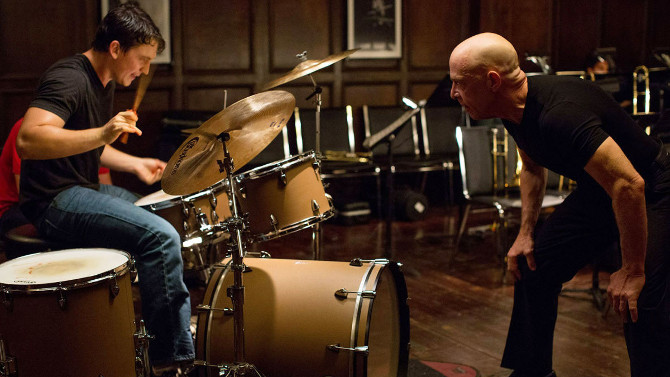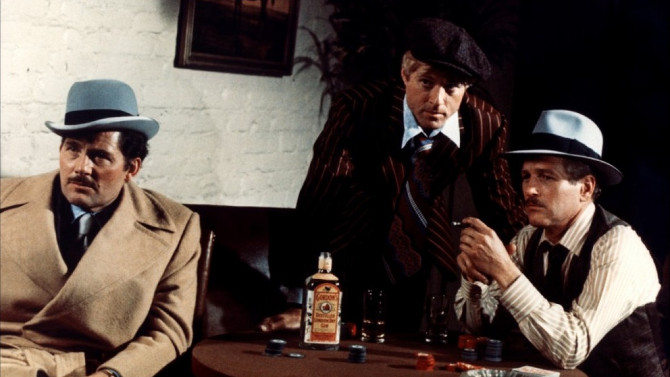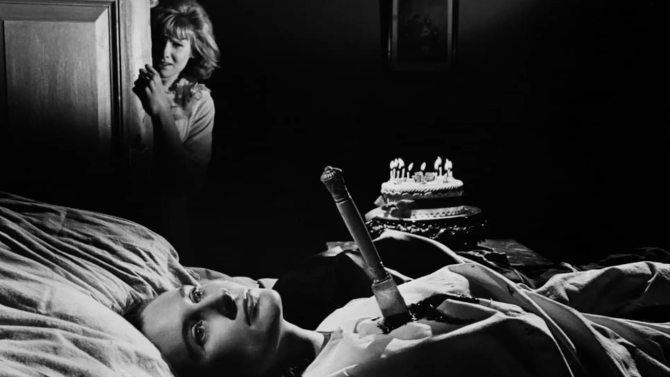
Night Terrors
Unlike most other memorable Hammer horror movies, the 1964 mystery thriller Nightmare, directed by Freddie Francis (perhaps better known as the cinematographer of films like David Lynch’s The Elephant Man and Martin Scorsese’s Cape Fear) eliminates all of the monsters for an old fashioned quasi ghost story... the piece deserving to be remembered up there with those Hammer horror films centered on vampires, resurrected corpses, and lycanthropes. Shot in shadowy black and white, the story follows struggling seventeen year old Janet (Jennie Linden), who is currently away from home living at a finishing school for girls.
-
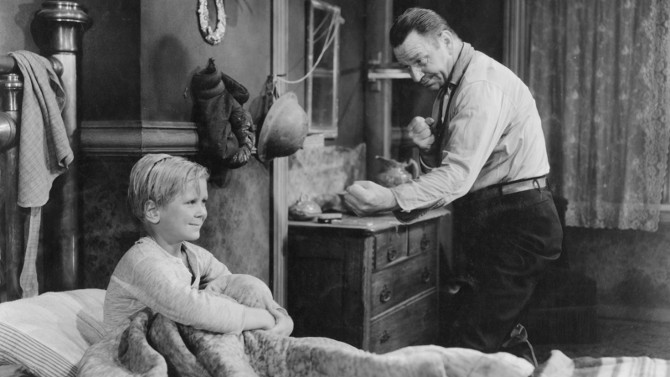
A Boy and His Champ
The ChampJune 16, 2017The story of a down-and-out boxer and his adorable son, 1931's The Champ, directed by King Vidor, is a tale of struggle and hardship as well as family, love and hope. The former champ, Andy Purcell (Wallace Beery – he won the Academy Award for Best Actor in a Leading Role in a rare tie with Frederic March), is for all intents and purposes, washed up. Though he is in the midst of training for his next bout, he continuously self-sabotages by turning to alcohol and then follows it up by playing dice, tossing the little money he has left away. His only saving grace is his young son, Dink (Jackie Cooper, one of The Little Rascals of the early sound era who went on to play Perry White in the first three Superman movies starring Christopher Reeve) – a child well beyond his years. A combination of tiny tramp and wise adult, he cares for his father like no one else. Trying to steer him away from booze and focus his wayward vision, he has a middling effect. Though his pleas reach his father, they do not stay his hand for long. The story is, in many ways, told through Dink’s eyes. The son of The Champ is usually followed by his trusty sidekick Jonah (Jesse Scott) and a plethora of other impoverished youths.
-
Star Pick with Yanic Truesdale
 Drum Roll PleaseWhiplashJune 6, 2017
Drum Roll PleaseWhiplashJune 6, 2017Whiplash, the story of a talented drummer who is pushed to the edge by a more than intense, militarist-style instructor, took the world by storm in 2014-2015 and has continuously gained steam ever since. The simple yet effective tale that consists of a battle of the wills helped the film earn three Academy Awards: including Best Supporting Actor for J.K. Simmons as well as Best Achievement in Film Editing and Sound Mixing. Whiplash has also landed at number 45 on IMDb’s top 250 films list.
-
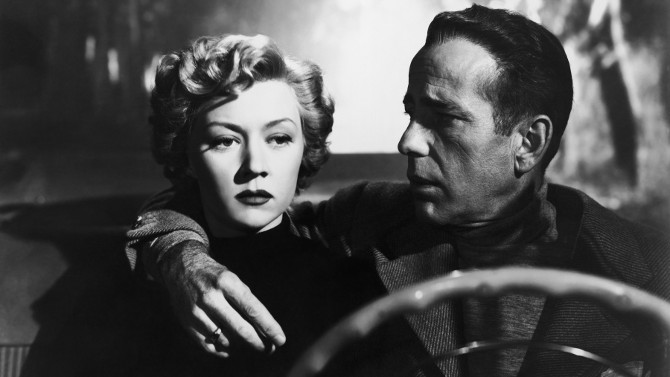
When Art Imitates Life
In a Lonely PlaceApril 25, 2017A man – lonely, laconic and quick to anger. A woman – cool, collected and in hiding. Both live in the same apartment complex in The City of Angels. Murder brings them together, but will it keep them together? Written by Andrew Solt and directed by Nicholas Ray, In a Lonely Place immerses us within the world of a Hollywood screenwriter, the rough-and-tumble, explosive Dixon ‘Dix’ Steele (Humphrey Bogart – who also produces the film); an apropos name to be sure. Struggling with a multitude of demons, he is quick to anger and even quicker to act. Despite not having a hit since before the war, he is given a solid opportunity by his agent, Mel Lippman (Art Smith), who asks him to adapt a novel. Seemingly uninterested, he invites the club’s hat-check girl, Mildred Atkinson (Martha Stewart. . . not that Martha Stewart), to his home to summarize the book for him (as she has just finished reading it). Following their business, he sends her on her way, directing her to where cabs usually gather nearby.
-
Star Pick with David Ebeltoft
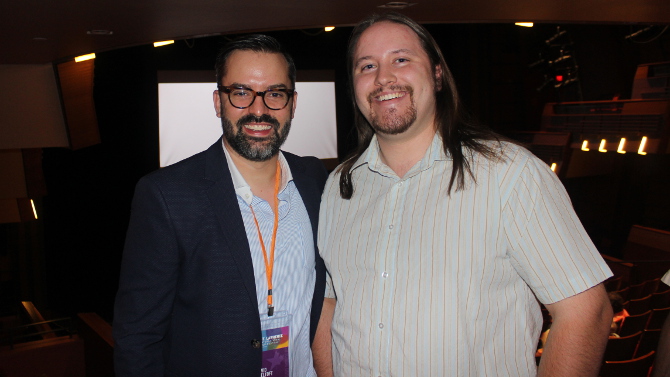 A Buzzworthy ProductionThe StingApril 18, 2017
A Buzzworthy ProductionThe StingApril 18, 2017Whether you’ve seen The Sting or not, it is nearly impossible not to recognize its main theme, titled "The Entertainer". A feel good, catchy, ragtime tune that is heard on and off from very beginning to utter end, it is Marvin Hamlisch’s reworking of the 1902 song by Scott Joplin that adds an auditory flair to the piece. It is this classic cinematic work that screenwriter David Ebeltoft, scribe of the Tribeca Audience Award Winner Here Alone, highlights as being his favourite. An up and coming writer in the business, his union with director Rod Blackhurst and producer Noah Lang (who was featured in last week’s Star Pick) seems like it is going to be a fruitful one, as the film making team have already announced two more features, You Were Once Called Queen City and North, following their first united effort – which has just been released and is doing very well in both theatres and online.
-
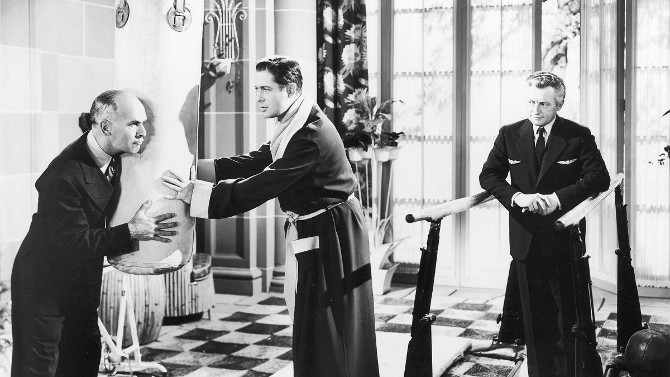
Air Jordan
Here Comes Mr. JordanApril 9, 2017There may be no film with a more influential pedigree that is lesser known than the fantastical 1941 romantic dramedy Here Comes Mr. Jordan. Honoured with a sort-of-sequel (1947's Down to Earth – starring Rita Hayworth, it also features reprisals from actors James Gleason and Edward Everett Horton. . . which itself inspired the 1980 feature Xanadu), it was also remade by Warren Beatty in 1978 – titled Heaven Can Wait. Chris Rock had a go with the subject matter in 2001 with his version, Down to Earth – reusing the title from the original sequel. In 1968, it was even remade in India – Jhuk Gaya Aasman – English translation: The Skies Have Bowed. At one point, even Bill Cosby tried to get a version of the story produced – though this iteration fell through. The intensely bitter and sweet tale of a boxer who gets in a plane crash, which is followed by a mistake in Heaven, it can also be seen as the precursor and inspiration for motion pictures like A Guy Named Joe (1943), It’s A Wonderful Life (1946), A Matter of Life or Death (1946), The Ghost and Mrs. Muir (1947), as well as so many others. Mashing together a multitude of genres which I will explain later, the boxer, Joe Pendleton (Robert Montgomery), who is soon to be competing for the world title, is gearing up for his next big bout. Trained by his loyal manager, Max Corkle (James Gleason), the two argue over the fact that he wants to fly himself to his next fight in New York City. Unable to convince the genial but stubborn athlete, it is soon after that he plummets to his ‘supposed’ death.
-
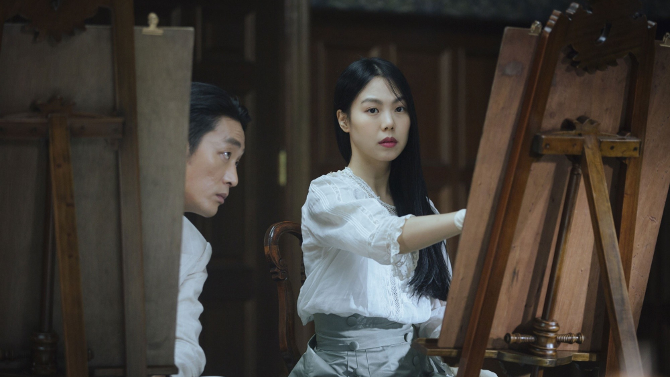
The Handmaiden’s Tale
The HandmaidenMarch 31, 2017Director Chan-wook Park, a visual mastermind who concocted the intoxicating Stoker in 2013 (a loose remake of Alfred Hitchcock’s superb Shadow of a Doubt), his first, and to date, only English language film, follows it by putting his talents into making another striking, intricately plotted psychological mystery/thriller in The Handmaiden. Loosely based upon Sarah Waters’ novel "Fingersmith", the filmmaker moves the tale from Victorian era England to 1930s Korea – which is under Japanese colonial rule. Divided into three parts, he utilizes the technique to great effect, providing us with only part of the story each time. In many ways it’s like being given a puzzle with only the edges to start with, so we think we understand what is going on, as we have been given the outline, but only truly gain a stronger appreciation of its complexity and beauty when provided with the pieces that fill in the whole picture. Park’s unique style slowly divulges the true essence of this film by providing alternate angles, different perspectives, flashbacks and flash forwards (those essential remaining puzzle pieces).

